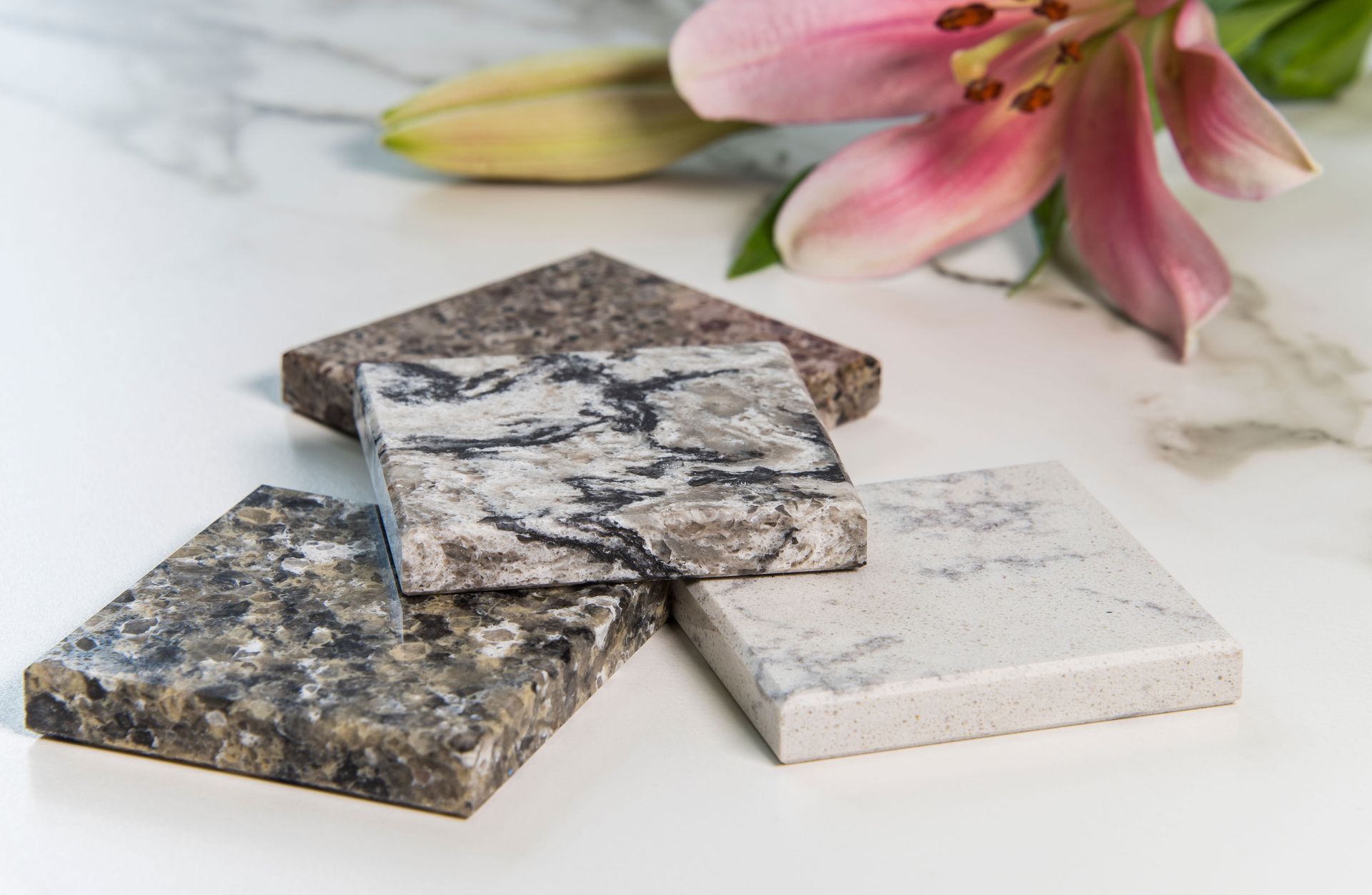6 Things to Consider When Choosing a Natural Stone Countertop Material
Natural stone countertops are a popular choice for many homeowners due to their beauty, durability, and unique character. However, selecting the right stone for your kitchen or bathroom can be an overwhelming task. This article explores numerous crucial factors to consider when choosing a natural stone countertop material to ensure you make an informed decision that complements your style and meets your needs. The choice of countertop material can significantly influence not just your kitchen's aesthetics but also its functionality and overall value. With the natural stone market valued at approximately $2.2 billion in the U.S. and expected to grow, according to Grandview Research, making the right choice is more important than ever.
1. Durability and Hardness
The durability of a countertop material is a primary consideration when it comes to its long-term performance in a busy kitchen or bathroom. Different natural stones have varying degrees of hardness, which affects their longevity and resistance to daily wear. Understanding the Mohs Hardness Scale is crucial as it measures a stone's resilience to scratches and abrasions. For example, quartzite, a popular natural stone, ranks high on this scale, making it a robust choice for countertops. In contrast, a softer stone like marble might require more care to prevent damage.
Impact resistance is another critical factor to consider when selecting a natural stone countertop. Some stones can withstand heavy impacts without chipping or cracking, which is particularly important in high-traffic areas. Granite is renowned for its ability to handle physical stress, making it a favorite in busy households. Conversely, limestone may not be the best choice if durability is your primary concern. Understanding each stone's capability can prevent premature damage and preserve the countertop's appearance.
2. Appearance and Aesthetics
The visual appeal of a natural stone countertop is a primary attraction for many homeowners due to the vast array of colors and patterns available. Natural stone, being a product of the earth, offers unique appearances that can dramatically enhance the ambiance of a room. Variations in color and veining ensure that no two slabs are the same, providing a one-of-a-kind product for each installation. This ability to offer unique patterns allows homeowners to select a piece that aligns with their personal tastes. Stones like marble, granite, and onyx provide stunning visual options that cater to different aesthetic preferences.
Besides color and pattern, the surface finish of the stone contributes significantly to the overall appearance of the countertop. Options include polished, honed, and leathered finishes, each imparting a distinct feel to the material. A polished finish provides a glossy, reflective surface that highlights the stone's finer details, while a honed finish is matte and subtle, often used for creating a more relaxed atmosphere. Coupling the right finish with the stone selection ensures that the countertop complements the rest of your decor.
3. Maintenance Requirements
The level of maintenance required is a vital consideration for any natural stone countertop, impacting its suitability for everyday use. Most natural stones need periodic sealing to maintain their integrity and appearance, with the frequency varying by stone type. Granite typically requires sealing once a year, while marble may need it more frequently due to its porosity. Proper sealing helps in repelling stains, moisture, and etching, ensuring the stone remains beautiful over time.
Cleaning is another crucial aspect of natural stone maintenance, with some materials requiring more attention than others. Daily cleaning routines should involve mild soaps and soft cloths to avoid damage caused by harsh chemicals or abrasive materials. For stones like limestone or marble, which are more susceptible to etching, using appropriate cleaners prevents surface damage. Regularly cleaning your countertop preserves its pristine condition and avoids the buildup of grime or stains that could affect its natural beauty.
4. Cost Considerations
The cost of installing natural stone countertops varies widely depending on the type of material chosen. Some varieties, like marble and granite, are more affordable and commonly available, making them a popular choice for many homeowners. In contrast, exotic stones sourced from distant locations can be significantly more expensive due to rarity and transportation costs. Alongside material costs, the complexity of the installation and special design requirements can add to the overall expense. Per square foot costs must be evaluated in conjunction with long-term value contributions to your property.
Installation costs, in addition to material expenses, play a significant role in the total outlay for a stone countertop. This can include costs associated with preparing the site, customizing the cut and finish, and labor. For more intricate countertop shapes or those requiring specialized installations, labor costs can rise substantially. Additionally, markets may vary widely in terms of labor pricing, so exploring local professional networks can yield more precise estimates.
5. Environmental Impact
Choosing natural stone comes with considerations regarding its environmental impact, starting with sourcing and extracting practices. Responsible sourcing aims to minimize ecological disturbance during the extraction process, ensuring long-term sustainability. Quarrying and processing activities contribute to energy consumption and habitat disruption, but some suppliers engage in more sustainable practices to minimize environmental footprints. Confirming a supplier's commitment to eco-friendly practices is a proactive step you can take. Ultimately, choosing suppliers that prioritize eco-friendly extraction aligns with values and supports broader environmental objectives.
The transportation footprint of natural stone is another factor that impacts its environmental efficacy. Stones sourced locally require less energy for transportation compared to those imported from overseas, reducing their carbon footprint. Buying regional stone also supports local economies and reduces the overall environmental toll. Additionally, certain certifications grant industry-wide guarantees for practices committed to reducing the environmental impact. Understanding the history and journey of a potential purchase can inform more environmentally amicable decisions for your new countertops.
6. Market Availability
The market availability of natural stone varies, often dictated by trends, resources, and demand. Some stones, like granite and marble, are ubiquitous and typically easier to source locally or internationally. Conversely, rare stones are subject to availability complications, potential long wait times, and increased costs due to limited supply. Understanding what is readily available and discussed with local vendors expedites planning and purchasing processes. It's helpful to consult industry trends to predict when certain stones will align with your project's timeline.
Regional stone varieties provide unique opportunities for sourcing and add notable character to your countertops. These stones are often more affordable due to lower transportation costs and can sometimes align closely with desired aesthetics. Regional varieties may exhibit unique color variations and patterns, representing the geological identity of a specific location. Preferring regional stones supports local industries and stands as an environmentally-friendly choice by minimizing logistical footprints. Researching these options may reveal beautifully unique stones that would otherwise be overlooked.
Choosing the right natural stone countertop involves a careful evaluation of multiple factors, including durability, aesthetics, maintenance, cost, environmental impact, and availability. By considering these aspects, you can select a countertop material that suits your lifestyle and enhances the beauty of your space. The decision for such a significant home feature should reflect both personal preferences and long-term benefits, ensuring lasting satisfaction. If you're in search of a stone supplier for your new countertops or other project, look no further than our team at Blackstone Granite & Marble. Contact us today to learn more about our products and discuss your needs. We look forward to working with you!










